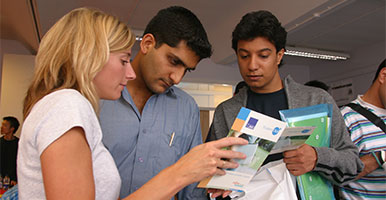Support for students with a disability
As a student with a disability there is a huge variety of services and support available to you.
Disabilities can include:
- mental health condition, for example anxiety or depression
- physical disability, for example if you have to use crutches, a wheelchair or a special keyboard
- sensory disability, for example if you’re visually impaired, deaf or have a hearing impairment
- long-term health condition, for example cancer, chronic heart disease or HIV
- specific learning difficulty, for example dyslexia or ADHD
Below you'll find information about those services and how you can access them during your time at Liverpool John Moores University.
Discover how we ensure Accessibility around LJMU for every visitor.
Let us know about your disability
The Disability Advice Team will help you access the support you need. The best time to contact the Disability Advice Team is before you start your course. By contacting the team before you begin and disclosing your disability, you'll be able to receive support from when you arrive.
To let the team know that you have a disability, please contact us - we'll be happy to help:
- Email: disability@ljmu.ac.uk
- Telephone: 0151 231 3168
Services available
In house support
Specialist tailored support
Contact the Disability Advice Team
The Disability Team can currently be contacted by emailing disability@ljmu.ac.uk .




